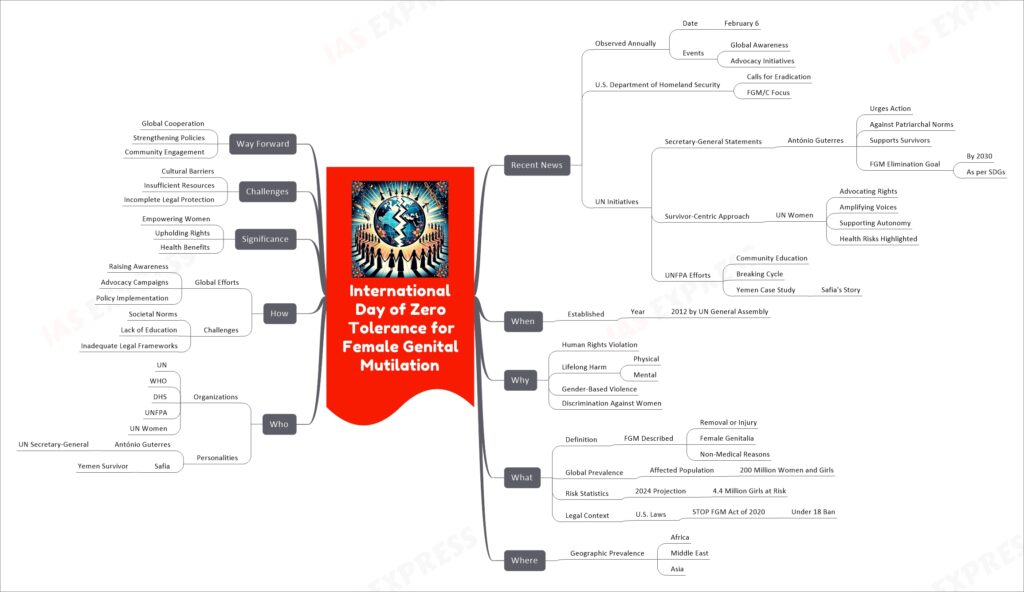International Day of Zero Tolerance for Female Genital Mutilation

The International Day of Zero Tolerance for Female Genital Mutilation, observed annually on February 6, is a global initiative to eradicate Female Genital Mutilation/Cutting (FGM/C). This day, established by the United Nations General Assembly in 2012, emphasizes the need to eliminate a practice that causes significant physical and mental harm to women and girls and is considered a severe violation of human rights and gender-based violence. With about 200 million affected women and girls globally and 4.4 million girls at risk in 2024 alone, the day calls for decisive action against patriarchal norms, amplifying survivors’ voices, and promoting global cooperation to uphold women’s rights and health. The efforts are aligned with the Sustainable Development Goals’ target of eliminating FGM by 2030. Organizations like the UN, WHO, DHS, UNFPA, and UN Women play a pivotal role in this initiative through advocacy, raising awareness, and supporting legal frameworks like the U.S.’s STOP FGM Act of 2020.
If you like this post, please share your feedback in the comments section below so that we will upload more posts like this.

